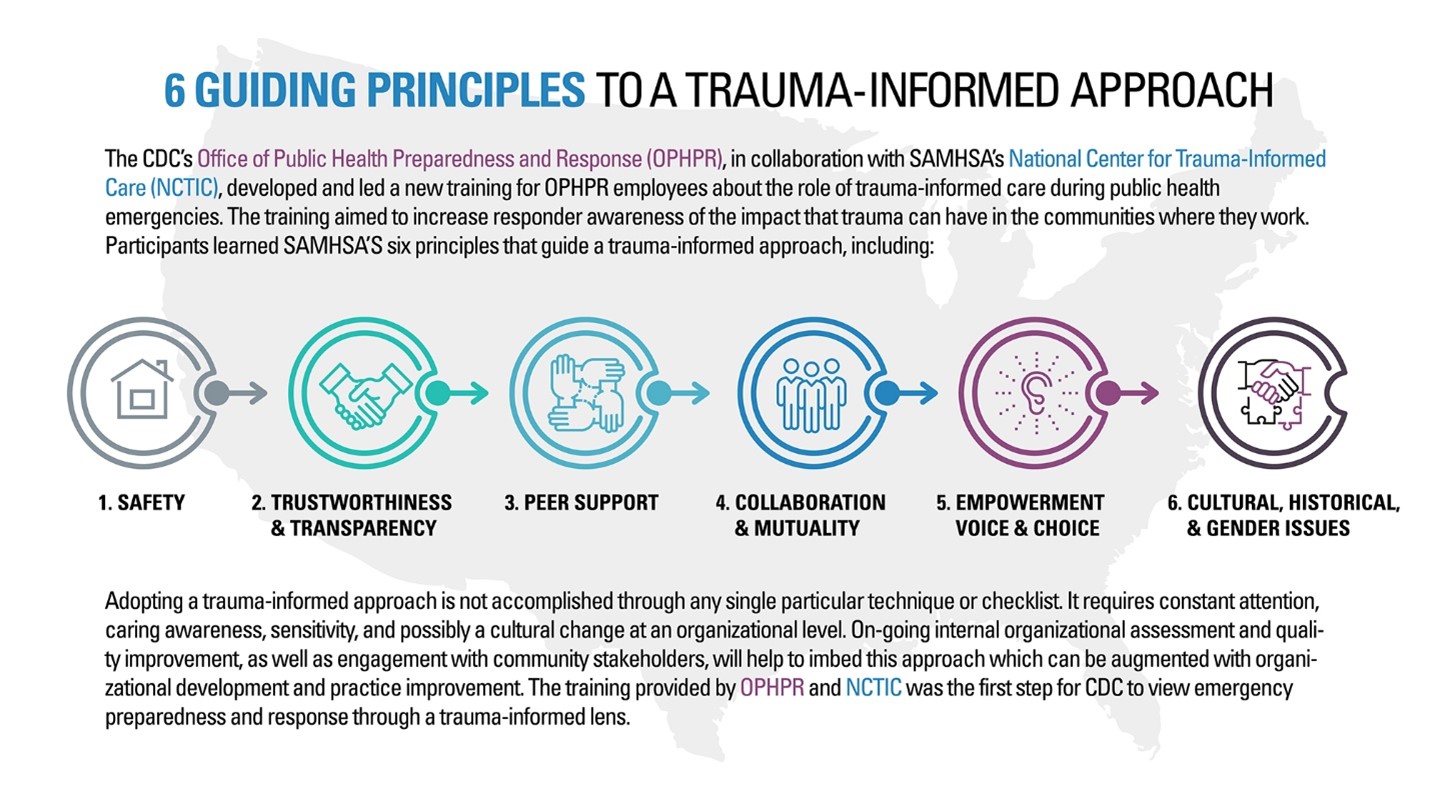A trauma responsive model emphasizes the need for communities to recognize the prevalence and pervasive impact of trauma on the lives of their residents. It guides the development of trauma-sensitive or trauma-informed values, services, laws, and protocols. Frederick County can reduce or even eliminate many of the consequences of trauma, in whatever form it takes, by becoming more trauma responsive.
A trauma informed or responsive approach can ease some of the traumas experienced by our community throughout this pandemic. What we learn as a community can continue to be applied to trauma prevention and trauma response once the acuity of the pandemic is behind us.
Developing a trauma responsive culture is challenging, but by adhering to the six core principles of a trauma responsive approach, we can transform our community in positive ways. Through dedication, community understanding, and support at all levels, Frederick County can become a trauma responsive community.

Throughout the community, individuals and families feel physically and psychologically safe.
Community-wide decisions are made with transparency, with the goal of building and maintaining trust.
Individuals with shared experiences are integrated into the community and viewed as integral to service delivery and community wellbeing.
Power differences — between and among systems and individuals/families — are leveled to support shared decision-making.
Individual and family strengths are recognized, built on, and validated — this includes a belief in resilience and the ability to heal from trauma
Biases and stereotypes (e.g., based on race, ethnicity, sexual orientation, age, geography) and historical trauma are recognized and addressed.
